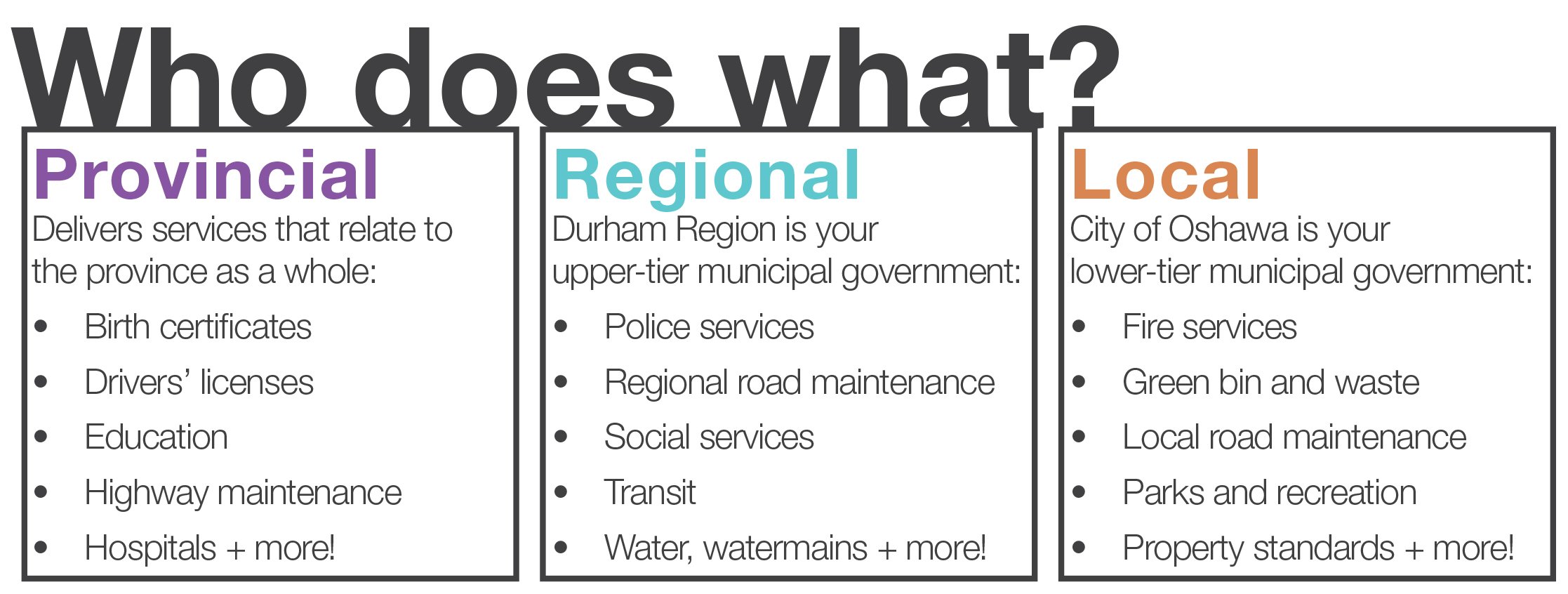
Budget and Financial
Municipalities are required to prepare and adopt annual operating and capital budgets. Additionally, it is a best practice and a valuable planning tool for management. The budget process provides City Council with information needed to make decisions about the supplies of services and capital infrastructure. The Council approved budget determines the total amount of taxes to be levied for the budget year.
As a lower-tier municipal government, the City of Oshawa collects property taxes for not only itself, but also on behalf of the Regional Municipality of Durham (an upper-tier municipality) and the Province of Ontario.

Learn more about the roles and responsibilities of different levels of government on the Government Services webpage.
The budget involves planning for the City's operations and activities to manage revenues and expenditures responsibly. Aligned with the Oshawa Strategic Plan, our key planning document consists of operating and capital sections.
- Operating budget covers costs such as snow removal, road and existing infrastructure maintenance, and support of fire and other services.
- Capital budget represents investments in key strategic priorities for the City's future and covers costs of constructing and renewing buildings, roads and parks.
Financial Reporting
Financial Statements include assets, liabilities, revenues and expenditures of the City and its consolidated entities, the Oshawa Public Library Board and the investment in Oshawa Power and Utilities Corporation.
- 2023 Audited Financial Statements
- 2022 Audited Financial Statements
- 2021 Audited Financial Statements
The Financial Strategy guides the City on how it will afford to achieve its strategic goals and objectives using established financial policies. Outlined are the activities, resources, equipment and materials needed to meet these goals and objectives, and the time involved.
Read our 2025-2029 Financial Strategy
Resources

Asset Management helps municipalities plan for infrastructure needed to deliver services to the community.

The Canada Community-Building Fund provides stable, reliable and predictable funding for municipal infrastructure.

Development charges are one time fees collected by municipalities on new properties to help pay for a share of growth-related infrastructure needs.
